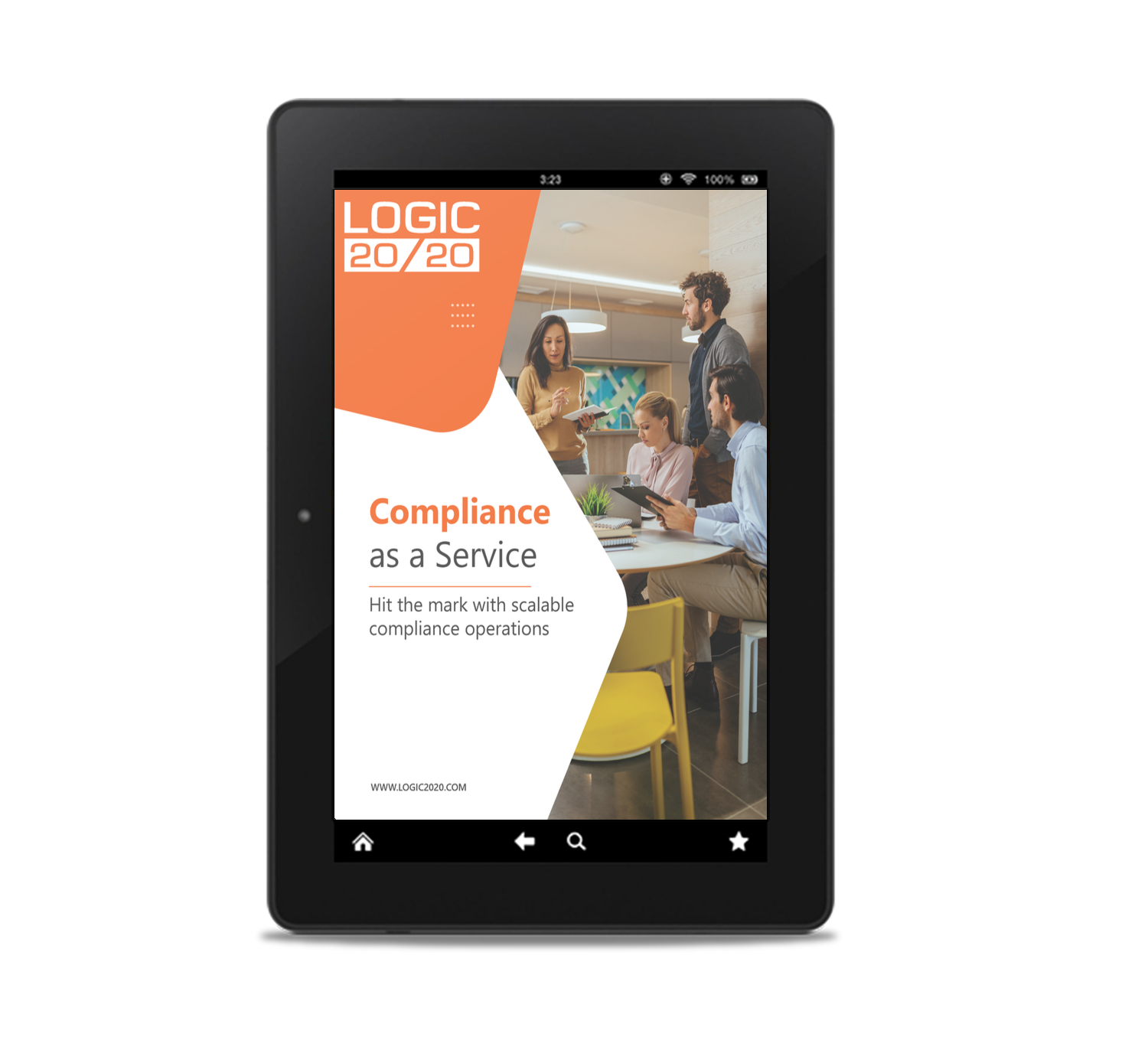6-minute read
Quick summary: How clear, impactful sustainability communications enhance compliance, build trust among stakeholders, and strengthen brand reputation
Sustainability practices have evolved from nice-to-have initiatives to a critical component of corporate strategy. Organizations are under increasing pressure to report on their environmental, social, and governance (ESG) practices, not only to meet regulatory requirements, but also to effectively communicate the impact of their actions to a wide range of stakeholders.
In balancing the dual goals of regulatory compliance and stakeholder engagement, companies must navigate an ever-growing set of reporting standards while ensuring their sustainability efforts are transparent and impactful. By doing so, they build trust, strengthen relationships with investors and customers, and enhance their brand reputations.
Clear, transparent communication around sustainability is no longer optional—it’s essential for companies looking to remain competitive, compliant, and credible in a world that increasingly values environmentally responsible practices.
Article continues below.

Compliance as a Service (CaaS) ebook
Get expert insights on how to hit the mark with scalable compliance operations.
We will never sell your data. View our privacy policy here.
Compliance reporting: Navigating evolving regulations
As sustainability takes center stage, U.S. companies face growing pressure from stakeholders and voluntary standards to report on carbon emissions, ESG metrics, and overall environmental impact. While regulatory requirements are still emerging, particularly through the SEC’s proposed climate disclosure rules, non-compliance with voluntary frameworks or failure to meet stakeholder expectations can lead to reputational damage and lost business opportunities. Many companies are adopting proactive sustainability reporting to stay ahead of potential regulations and enhance transparency.
For U.S.-based companies, several key sustainability standards and frameworks guide reporting, though most are voluntary and widely adopted due to stakeholder pressures:
- Securities and Exchange Commission (SEC) Climate Disclosure Rules (pending judicial review)
- Sustainability Accounting Standards Board (SASB)
- Task Force on Climate-Related Financial Disclosures (TCFD)
- Carbon Disclosure Project (CDP)
- World Economic Forum Stakeholder Capitalism Metrics
While only the SEC’s proposed rules may become mandatory, the other frameworks are being widely adopted due to rising stakeholder expectations and competitive pressures. Companies that proactively align with these frameworks often gain a reputation advantage and better position themselves for potential future regulations.
Communicating sustainability impact to stakeholders
Today’s stakeholders, from investors to customers, expect more from companies than checked-off compliance lists—they demand transparency and real-world evidence of a commitment to sustainability. Meeting these expectations requires going beyond regulatory reports and demonstrating tangible impact, which could range from the number of trees saved to kilowatt-hours of energy conserved.
Effective sustainability communication requires organizations to tell a compelling story. Rather than relying solely on metrics, successful companies frame their data in ways that resonate both emotionally and practically. Highlighting concrete examples of environmental benefits within each story helps stakeholders connect with the broader significance of the company’s efforts.
When sustainability reports are clear and transparent, stakeholders can more accurately assess the long-term value and risks associated with a company’s practices. These insights help them better understand the true ROI of sustainability initiatives, reinforcing trust and strengthening relationships.
Building strong data foundations for quality communications
Accurate, reliable data forms the backbone of impactful sustainability communications. Without trustworthy data, companies risk undermining their credibility, making it difficult to meet regulatory requirements and to build stakeholder trust.
Emerging technologies like AI and the Internet of Things (IoT) are elevating approaches to collecting and reporting sustainability data. These tools enable real-time tracking, enhancing accuracy and providing insights that were previously difficult to capture. Advanced technologies enable organizations to streamline their data management, ensuring they meet compliance standards while also delivering high-quality reports to stakeholders.
Leveraging compliance automation for efficiency and accuracy
Automation is transforming compliance reporting, allowing organizations to meet regulatory deadlines consistently, reduce operational costs, and scale their sustainability programs. By automating data collection and analysis, companies can streamline complex reporting processes, improving both accuracy and efficiency.
Recently, a California utility partnered with Logic20/20 to help them meet the state’s Office of Energy Infrastructure Safety (OEIS) compliance requirements. The utility faced significant challenges with their manual approach to data reporting, which led to delays and potential inaccuracies. By implementing automation technology, we were able to streamline their processes, improve data accuracy, and reduce time spent on generating compliance reports. These outcomes not only ensure that they meet regulatory deadlines but also free up valuable resources to focus on long-term sustainability goals.
ESG and your brand: Elevating reputation through transparency
ESG reporting has evolved from a rote task into a vital element of brand-building. Businesses recognize ESG efforts as opportunities to differentiate themselves and demonstrate a commitment to sustainable, responsible practices.
A key aspect of effective ESG reporting, especially when it comes to managing carbon output, is the inclusion of Scopes 1, 2, and 3 emissions. These scopes serve as the foundational elements for how companies measure and manage their greenhouse gas emissions:
- Scope 1: Direct emissions from sources owned or controlled by the company, such as fuel combustion in company vehicles or factories
- Scope 2: Indirect emissions from the generation of purchased electricity, steam, heating, or cooling consumed by the company
- Scope 3: All other indirect emissions that occur across the value chain, including those from suppliers, business travel, and product use by customers
Transparent reporting across all three scopes is crucial, as it provides a comprehensive view of the company’s total carbon footprint. This transparency allows stakeholders to better understand how a business is managing its emissions and working toward reduction targets.
Clear, complete ESG reports that include Scopes 1, 2, and 3 emissions help foster trust across key stakeholder groups, including investors, consumers, and employees. It signals that the organization is not only compliant, but also genuinely invested in making a positive environmental impact. These signals enhance the overall reputation of the business, positioning it as a leader in sustainability.
Companies that actively communicate their sustainability efforts—particularly by fully disclosing their emissions data—often see increased brand loyalty, heightened investor confidence, and improved profitability. By integrating ESG reporting into their brand narrative, they can unlock new growth opportunities while reinforcing their commitment to a more sustainable future.
How to get started with sustainability reporting and communication
For companies looking to enhance their sustainability efforts, here are some key steps for getting started:
Understand reporting standards
Identify the regulatory and voluntary frameworks relevant to your business and align with stakeholder expectations.
Assess your environmental impact
Map out Scope 1, 2, and 3 emissions to understand your carbon footprint and track progress. Ensure your data is accurate and covers all areas, from energy use to waste.
Leverage technology
Use automation, AI, and IoT strategically to streamline data collection and reporting, ensuring accuracy and real-time insights that keep your business one step ahead of evolving standards.
Set measurable sustainability goals
Develop clear, actionable goals for reducing emissions and conserving resources, and ensure they are integrated into your overall business strategy.
Communicate impact clearly
Go beyond compliance by sharing real-world examples of your sustainability impact, like carbon reductions or energy savings, to engage stakeholders.
Engage leadership and employees
Ensure that leadership drives sustainability efforts and embed these practices into your company culture to create long-term accountability and impact.
By focusing on these areas, companies can build a firm foundation for sustainability reporting, enhance communication, and position themselves as industry leaders in environmental responsibility.
Building trust through transparent sustainability communication
Building programs is just the beginning of the sustainability journey. To truly make an impact, companies must ensure effective compliance reporting and communicate their efforts successfully to stakeholders. By leveraging technology and adopting best practices in data management, businesses can ensure their sustainability communications—from formal reports to stakeholder check-ins—are accurate, timely, and meaningful.
Ultimately, companies that prioritize data quality and transparency in their sustainability efforts achieve more than just regulatory compliance. They enhance their brand reputation, build long-term trust, and increase the ROI of their sustainability initiatives—paving the way for continued growth and leadership in a rapidly evolving market.

Streamline compliance with expert guidance
- Compliance managed services
- Compliance process optimization
- Regulatory response readiness
- Compliance automation



